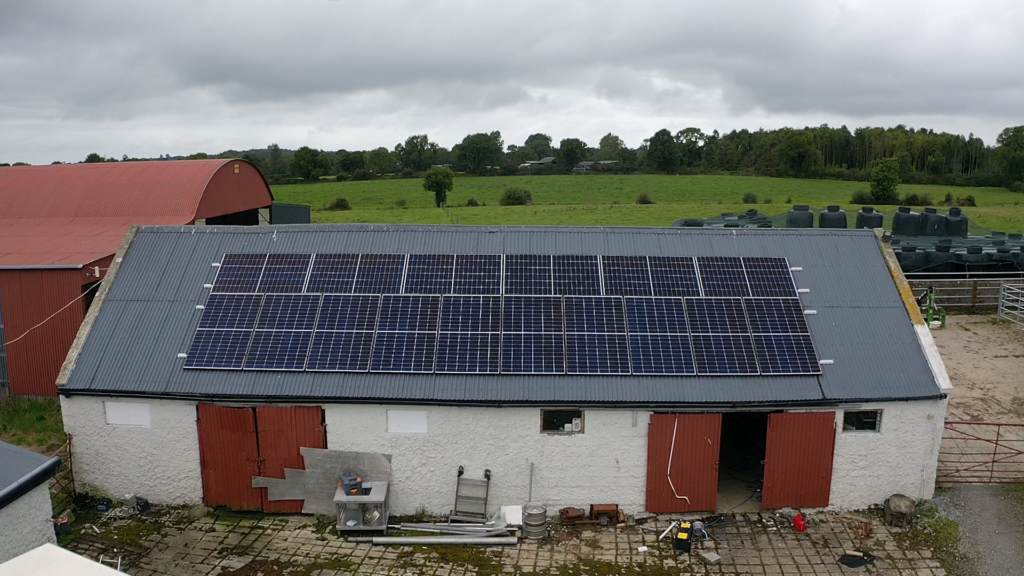What are the benefits of solar panels?
September 17, 2024Why solar panel efficiency is low?
September 17, 2024
The cost of solar panels in Ireland varies widely, influenced by the size of the system, the type of technology used, installation complexity, and whether you opt for additional features such as battery storage or inverters. Solar energy is becoming increasingly popular in Ireland due to rising electricity costs, environmental awareness, and government incentives. Here’s a more detailed breakdown of the typical costs and considerations when installing solar panels in Ireland:
1. System Size and Cost Breakdown
The size of the solar system directly impacts the price. Solar panel systems are usually measured in kilowatts (kW), which indicates their energy-generating capacity.
- Small Residential System (2kW-3kW):
- This system is suitable for smaller homes with low energy consumption.
- Typical cost: €4,000 – €6,000.
- A 2kW system could generate around 1,700 to 2,500 kWh of electricity annually, depending on location and weather.
- Medium Residential System (4kW-6kW):
- A medium-sized system is ideal for average households with moderate energy needs.
- Typical cost: €6,000 – €9,000.
- A 4kW system generates approximately 3,500 to 4,500 kWh annually, which can cover a significant portion of a typical family’s electricity demand.
- Larger Residential System (8kW-10kW):
- Larger homes with higher energy consumption would benefit from this system.
- Typical cost: €9,000 – €12,000 or more.
- These systems can produce up to 8,000-10,000 kWh of electricity per year, which may cover almost all of the household’s energy needs.
2. Additional Costs and Components
- Inverters: Solar panels convert sunlight into direct current (DC) electricity, but homes use alternating current (AC). Inverters, which convert DC to AC, are essential and can cost €1,000 to €2,000 depending on the system size and technology.
- Battery Storage: While solar panels produce electricity during the day, excess energy can be stored for use during the night or cloudy days. Battery storage systems can add €3,000 to €5,000 to the overall cost but provide greater energy independence and efficiency.
- Mounting and Installation: Installation costs can vary depending on the complexity of your roof and whether additional work like reinforcing the roof or upgrading the electrical system is required. Installation fees are generally included in the total quote but can range from €1,000 to €2,000 or more for more complicated setups.
3. Factors Influencing Cost
- Roof Type and Orientation: The type and angle of your roof can affect the cost. South-facing roofs are ideal for solar energy production in Ireland, while east or west-facing roofs may require more panels to generate the same amount of electricity.
- Location: Areas with more sunlight, such as in the south or southeast of Ireland, will produce more energy, which can affect both system design and cost.
- Energy Usage: Households with higher energy consumption may need larger systems to cover their needs, thus increasing the cost. Conducting an energy audit can help determine your current usage and the system size needed.
4. Government Grants and Incentives
Ireland’s government offers financial support to help reduce the upfront costs of solar panel installations:
- SEAI Grants (Sustainable Energy Authority of Ireland): Homeowners can avail of grants of up to €2,400 for residential solar PV (photovoltaic) installations. The grant amount depends on the size of the system installed:
- Up to €900 per kWp (kilowatt peak) of solar panels installed, with a maximum of €2,400 for a 4kW system.
- €600 grant available for homeowners who add a battery storage solution to their solar system.
- VAT Reduction: There is also a 0% VAT rate on the supply and installation of solar panels for private dwellings as part of Ireland’s climate action plan, further reducing costs.
- Smart Export Guarantee (SEG): This initiative allows homeowners to sell excess solar electricity back to the national grid, potentially earning a small income. The rate offered by energy companies may vary, so it’s worth checking which providers offer the best deal.
5. Energy Savings and Payback Period
Installing solar panels can significantly reduce your electricity bills, especially with rising energy costs. The amount you save depends on your energy consumption, the size of the solar system, and whether you have battery storage.
- Savings: On average, a 4kW solar system can save a household between €400 to €700 annually on electricity bills. Over time, these savings help offset the initial installation cost.
- Payback Period: The typical payback period for solar panels in Ireland is 6 to 10 years. This means that after this period, your system will essentially be providing free electricity (aside from minor maintenance costs). With government grants, the payback time can be even shorter.
- Environmental Impact: Solar panels also contribute to reducing your household’s carbon footprint, as they provide clean, renewable energy. Over 25 years, an average solar system can offset several tonnes of carbon dioxide emissions.
6. Lifespan and Maintenance
Solar panels typically have a lifespan of around 25-30 years. Most solar panel manufacturers offer warranties of 20 to 25 years, ensuring that panels maintain their efficiency for a long period. The maintenance requirements are minimal, generally limited to occasional cleaning and ensuring that no trees or obstructions cast shadows on the panels.
7. Conclusion
Solar panels represent a valuable long-term investment for Irish homeowners, offering significant financial and environmental benefits. While the initial cost can range from €4,000 to €12,000+, government grants and incentives, combined with energy savings, make solar energy a more affordable and attractive option. Additionally, with the availability of battery storage, the potential to store excess energy and further reduce reliance on the grid has made solar panels an even more compelling choice in Ireland’s transition to renewable energy.

